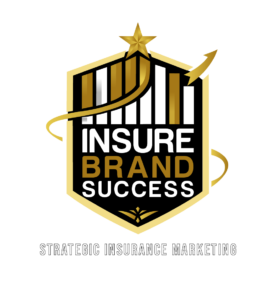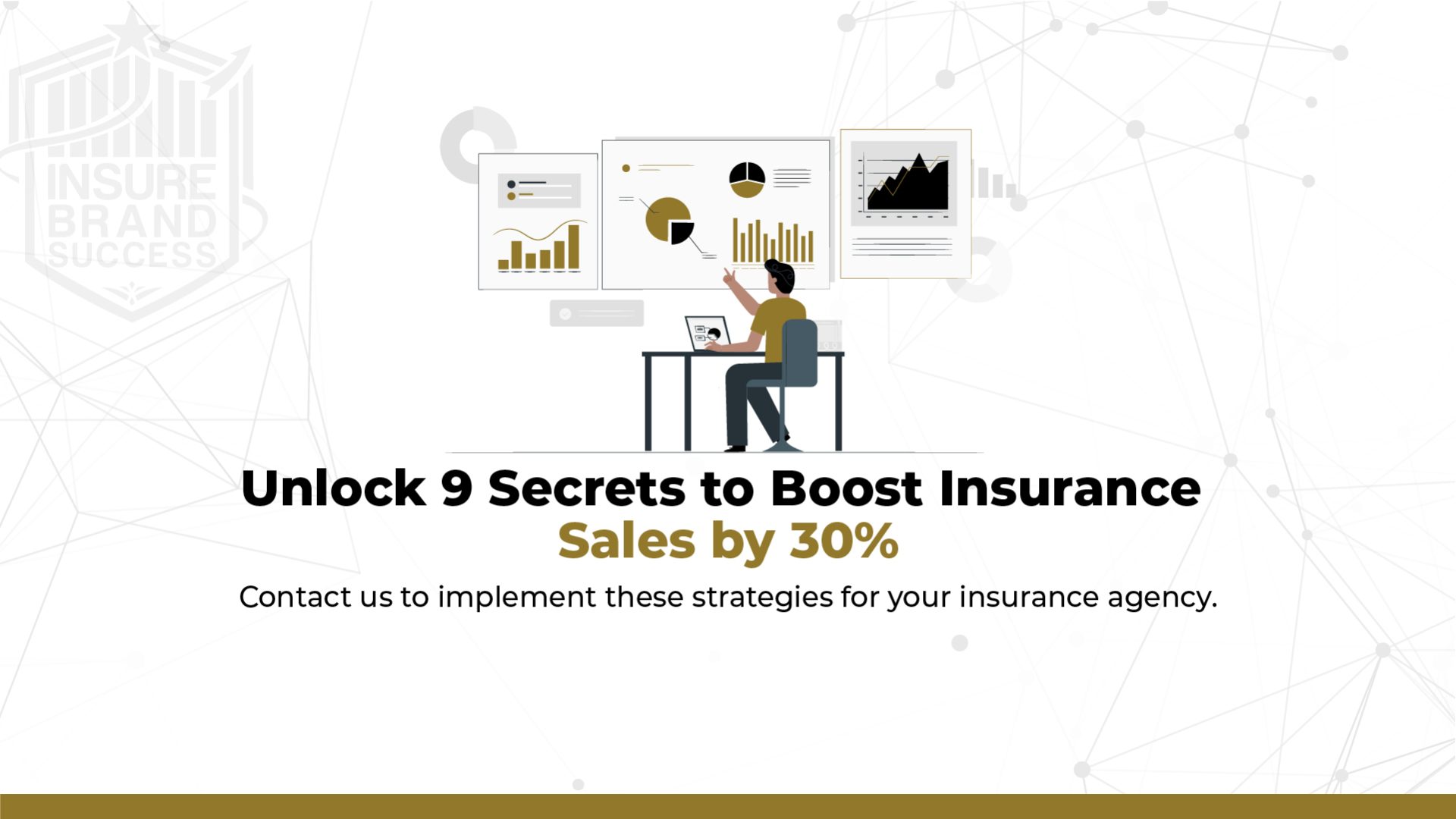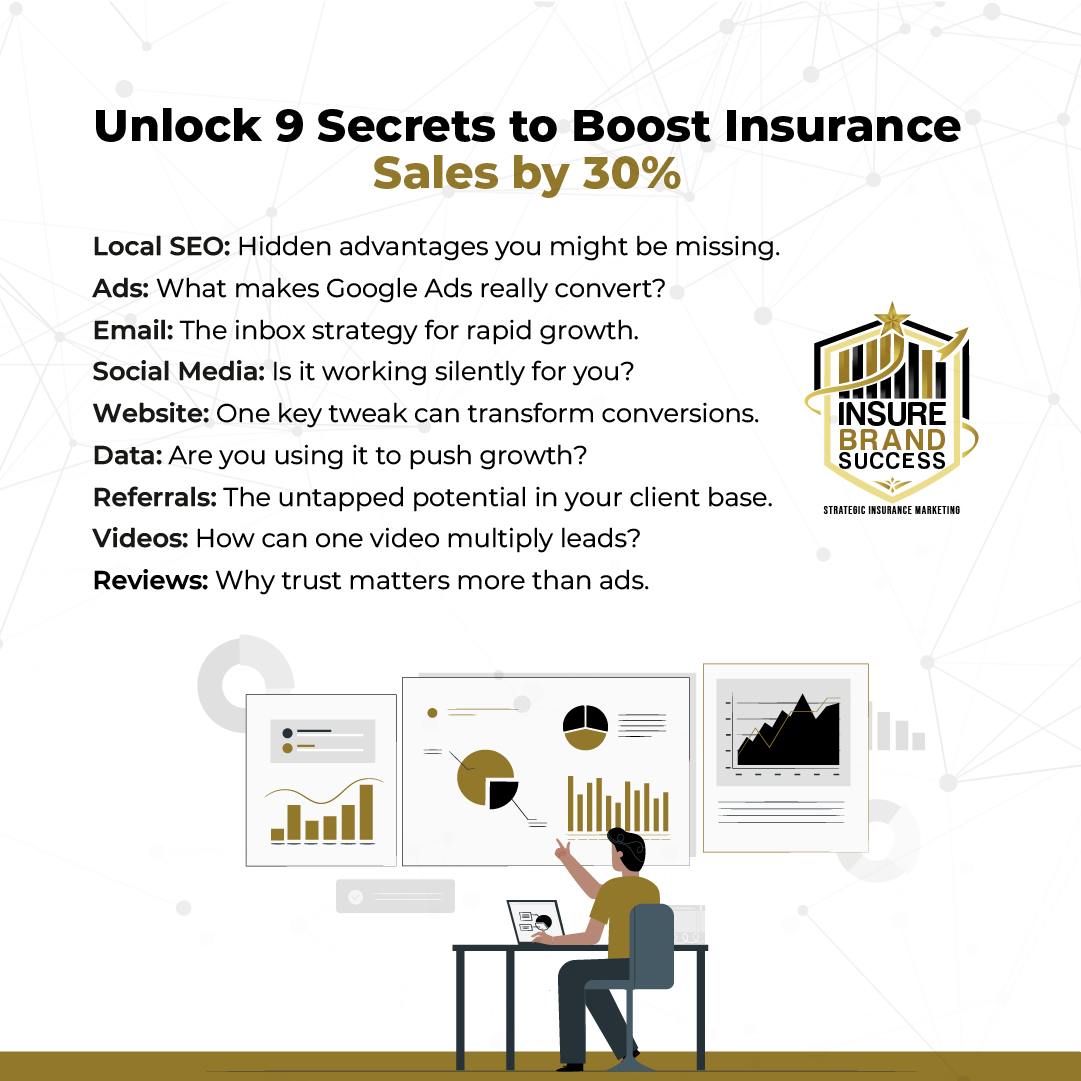As an insurance agency owner, you’re always on the lookout for ways to increase your client base and grow your business. While it can feel like a saturated market at times, smart marketing can distinguish your agency from competitors. By applying the right mix of digital marketing strategies, it’s entirely possible to boost your insurance sales by 30% this quarter. Below are nine proven marketing strategies to help your agency reach that goal.
1. Prioritize Local SEO to Capture Nearby Clients
Local SEO (Search Engine Optimization) is essential for insurance agencies. When potential clients search for insurance services, they typically look for options in their geographic area. Optimizing your website and Google Business Profile for local search terms ensures that you show up at the top of search results.
Start by ensuring that your Google Business Profile is updated with your correct address, phone number, and business hours. Next, focus on integrating local keywords on your website, such as “best insurance agency in [your city]” or “local insurance solutions in [your area].” This simple strategy can help you capture highly relevant, local leads.
For more local SEO tips, explore more tips.
2. Leverage Paid Advertising with Google Ads
Google Ads can be a game-changer when done right. One of the fastest ways to generate leads, paid search advertising allows you to bid on keywords that your potential clients are searching for. With a solid Google Ads strategy, your agency can reach prospects who are actively looking for insurance services.
For best results, target specific insurance-related keywords such as “home insurance near me” or “affordable auto insurance.” Google’s geotargeting feature allows you to focus on prospects within a defined radius, ensuring that your budget is spent effectively.
Consider running A/B tests to see which ad copy resonates better with your audience, and don’t forget to optimize your landing pages for conversion. For more ideas on how to structure your ads and campaigns, visit tips.
3. Start Using LinkedIn for Lead Generation
LinkedIn is an underrated platform for insurance agencies. Unlike social media platforms like Facebook and Instagram, LinkedIn is designed specifically for networking and business. This makes it an excellent tool for generating high-quality leads, especially in business-to-business (B2B) insurance.
You can use LinkedIn’s advanced search feature to find potential clients based on their job titles, industry, and location. Consider setting up a LinkedIn Lead Gen Form ad campaign, which allows users to submit their contact information without leaving the platform. Additionally, consistently posting educational content or sharing client success stories will help build your agency’s credibility.
For guidance on setting up a LinkedIn campaign, be sure to check out these tips.
4. Engage with Prospects via Email Marketing
Email marketing remains one of the most effective ways to nurture leads and convert them into clients. With automation tools like Constant Contact, you can set up targeted email campaigns that send personalized messages based on a prospect’s needs.
Start by segmenting your email list into categories such as new leads, existing clients, and inactive clients. Create engaging content for each group, whether it’s educational content on different types of insurance or special promotions for new clients. Regular newsletters that keep prospects and clients informed can also help build long-term relationships.
5. Create a User-Friendly, Lead-Generating Website
Your website is often the first interaction a potential client will have with your business. A clean, easy-to-navigate website that clearly outlines your services will help turn visitors into leads. Your homepage should have clear calls-to-action (CTAs), encouraging visitors to either call your office or submit a quote request.
Include multiple CTAs throughout your website, such as “Get a free insurance quote today” or “Contact us for a free consultation.” You should also make sure that your website loads quickly, is mobile-friendly, and has secure encryption (SSL) in place to build trust with your audience.
6. Focus on Client Reviews to Build Credibility
Client reviews are more powerful than you might think. Potential customers are more likely to trust the word of others, especially when making decisions about important matters like insurance. You should actively seek positive reviews from satisfied clients and display them prominently on your website and Google Business Profile.
Consider sending an automated email to clients after a policy renewal or successful claim, asking them to leave a review. Make it as easy as possible by including a direct link to your Google Business Profile or Facebook page.
7. Optimize Your Website for Conversions
Driving traffic to your site is only half the battle. Once visitors land on your page, you need to convert them into leads or clients. Start by using compelling language on your website’s CTAs, ensuring they’re actionable and specific, such as “Get your free insurance quote now” or “Contact us for a consultation.”
It’s also essential to have user-friendly forms that collect the right amount of information without overwhelming visitors. Consider offering downloadable resources, like an eBook or insurance guide, in exchange for an email address. This builds your email list while providing value to the visitor.
8. Utilize Data Analytics to Improve Campaign Performance
Marketing without data is like driving with a blindfold on. Use analytics tools like Google Analytics and Ahrefs to monitor the performance of your campaigns. You can track everything from website visits and user behavior to email open rates and ad performance.
By continuously reviewing this data, you’ll be able to see which strategies are working and which need adjustment. For instance, if a particular Google Ads campaign is underperforming, you can pause it and allocate that budget toward a more successful one. Over time, this data-driven approach will help you increase the ROI of your marketing spend.
9. Expand Your Social Media Presence
Beyond LinkedIn, platforms like Facebook and Instagram can also help insurance agencies build brand awareness and generate leads. Posting regularly about topics like insurance tips, client testimonials, and promotional offers keeps your agency top of mind for followers.
If you haven’t done so already, consider running paid advertising campaigns on these platforms. Both Facebook and Instagram allow you to target specific demographics, making it easy to reach potential clients who are in need of your services.
Engage with your audience and grow your social media following by leveraging helpful content and advertising strategies. Get more insights on how to use social media for your agency at
Incorporating these nine strategies into your marketing plan can dramatically boost your insurance sales by 30% this quarter. From leveraging local SEO and Google Ads to improving your email campaigns and website, each of these tactics works together to drive more leads, increase visibility, and ultimately grow your client base. Don’t wait to implement these changes—your next wave of growth is just a strategy away.
For expert help in growing your insurance agency, visit InsureBrandSuccess.com.




